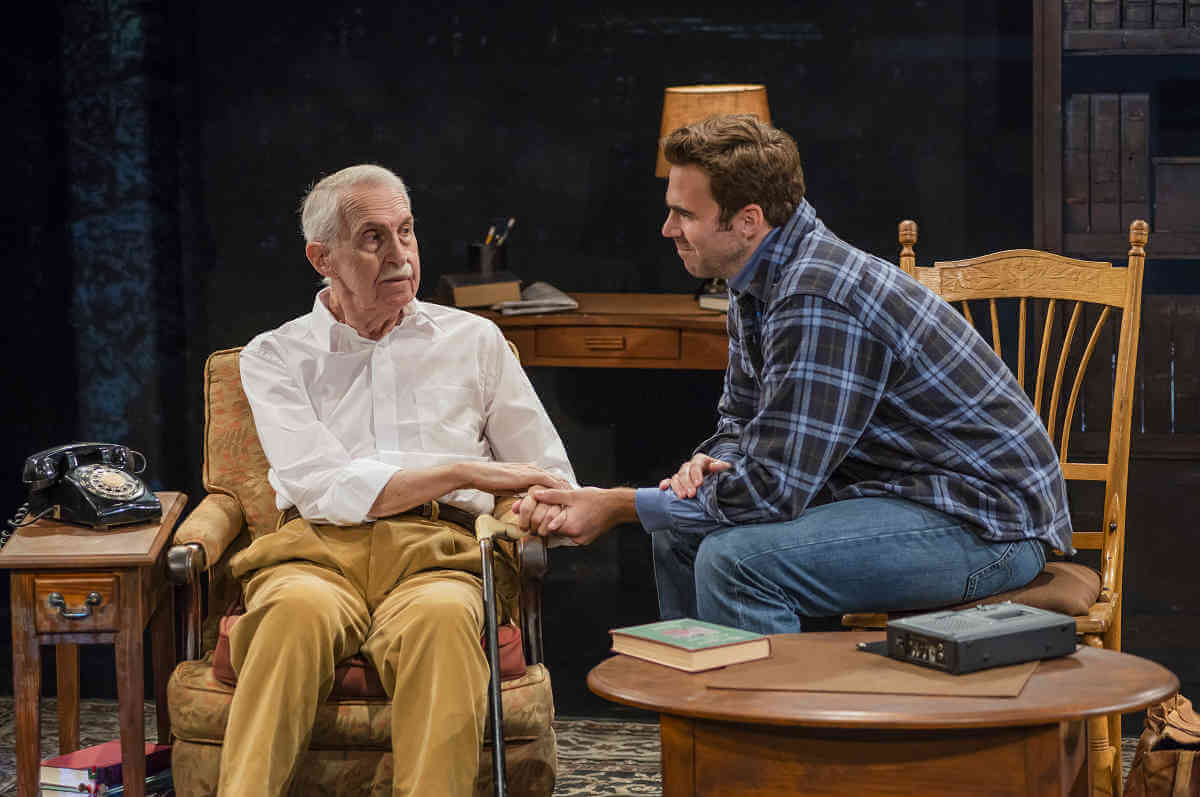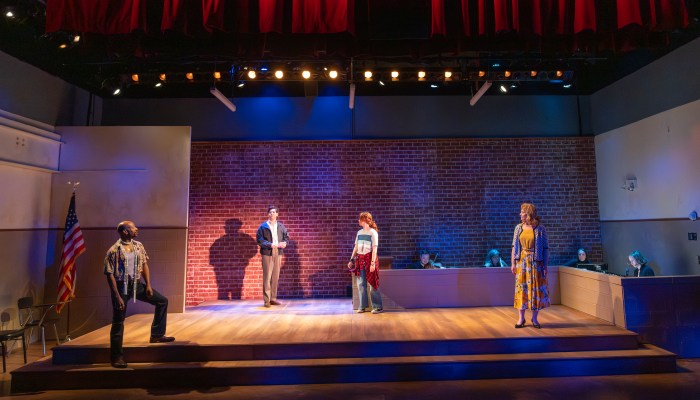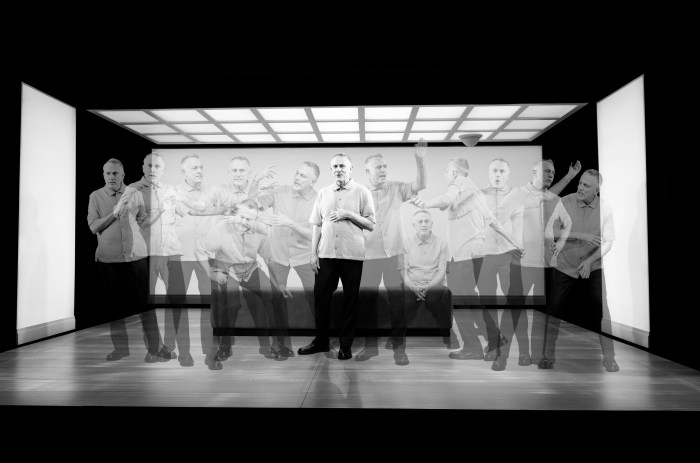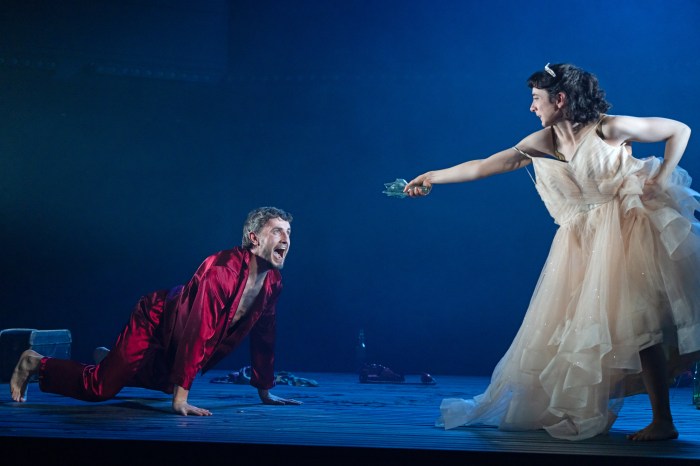A vibrant, groundswell movement is afoot to preserve gay history. Groups have sprung up such as Making Gay History, which features podcasts of interviews with LGBTQ luminaries, and the NYC LGBT Historic Sites Project, which documents key queer cultural sites with online interactive maps. There are books on the topic, like “A Passion to Preserve: Gay Men as Keepers of Culture” by Will Fellows.
Now, dramatist Dean Gray has crafted an absorbing new play about queer culture keepers, titled “The Pattern at Pendarvis,” based on Fellows’ book. Unlike scads of other plays that re-enact queer history, this one portrays the importance of preserving queer history.
Although inspired by a true story about Edgar Hellum and Robert Neal who, starting in the 1930s in rural southwestern Wisconsin, were pioneers in the historic preservation movement (and later, the farm-to-table culinary craze), the one-act drama is a work of fiction. The couple quietly set up house together for more than 40 years — gay men hidden in plain sight. Coming out about their sexuality would be unthinkable.
The premise couldn’t be simpler. The year is 1997, and frail, 92-year-old Edgar has consented to a face-to-face interview with author Rich Farnsworth (a stand-in for Fellows, and perhaps Gray also). They chat about the extraordinary work Edgar and his partner, Bob, now deceased for more than a decade, did to rescue and preserve a group of cottages built by Cornish lead miners in the 1840s in a town called Mineral Point, Wisconsin.
The prescience of the partners to save these distinctive structures while many others were being torn down cannot be overstated. The field of historic preservation as we know it didn’t exist back then. The site, by the way, is now run by the Wisconsin Historical Society.
In one of the cottages, affectionately named Pendarvis, they opened a tiny restaurant serving authentic Cornish fare that garnered raves from national magazines like Gourmet. People flocked there from all over Wisconsin, and beyond. The men did it to preserve the local Cornish culture.
“We didn’t do it for the money,” Edgar asserts. “Lord knows we didn’t make any.”
Tension develops when Norm Hansen, a crusty board member at Pendarvis, insists on sitting in on the interview to help fill in gaps of Edgar’s memory. It becomes clear, however, that his real goal is to steer the interview away from any talk of Edgar and Bob’s homosexuality, which is a focus of Rich’s upcoming book. Will the tenacious author be able to extract the information he needs?
Under the direction of Joseph Megel, “The Pattern at Pendarvis” is a slow burn of a play. The first half is relatively static and expository, with Edgar doing his best to answer queries. Gray’s naturalistic dialogue and incremental storytelling holds our interest. It’s not until the final minutes that the play realizes it’s full dramatic potential.
David Murray Jaffe, as Norm, and Gregory Jensen, as Rich, make the most of their slender roles. The standout by far is Lawrence Merritt, who embodies the soft-spoken Edgar with a delicate mix of caution, intrigue, humility, fervor, and, ultimately, pride.
The conclusion: not only would the town of Mineral Point not exist if the duo didn’t step in to save the cottages and open an eatery, which became a booming tourist attraction, but it was their special brand of queer domesticity that made the enterprise work.
Edgar says of Bob and their magnificent enterprise, “You know, none of it would have happened without him.” But that’s not quite accurate. None of it would have happened without the two of them, working in tandem as a loving, committed couple.
THE PATTERN AT PENDARVIS | New Dog Theatre Company | HERE Arts Center, 145 Sixth Ave. at Dominick St. | Through Aug. 5; Wed.-Sat. at 7 p.m.; Sun. at 2 p.m. | $25 at here.org | Eighty mins., no intermission





























